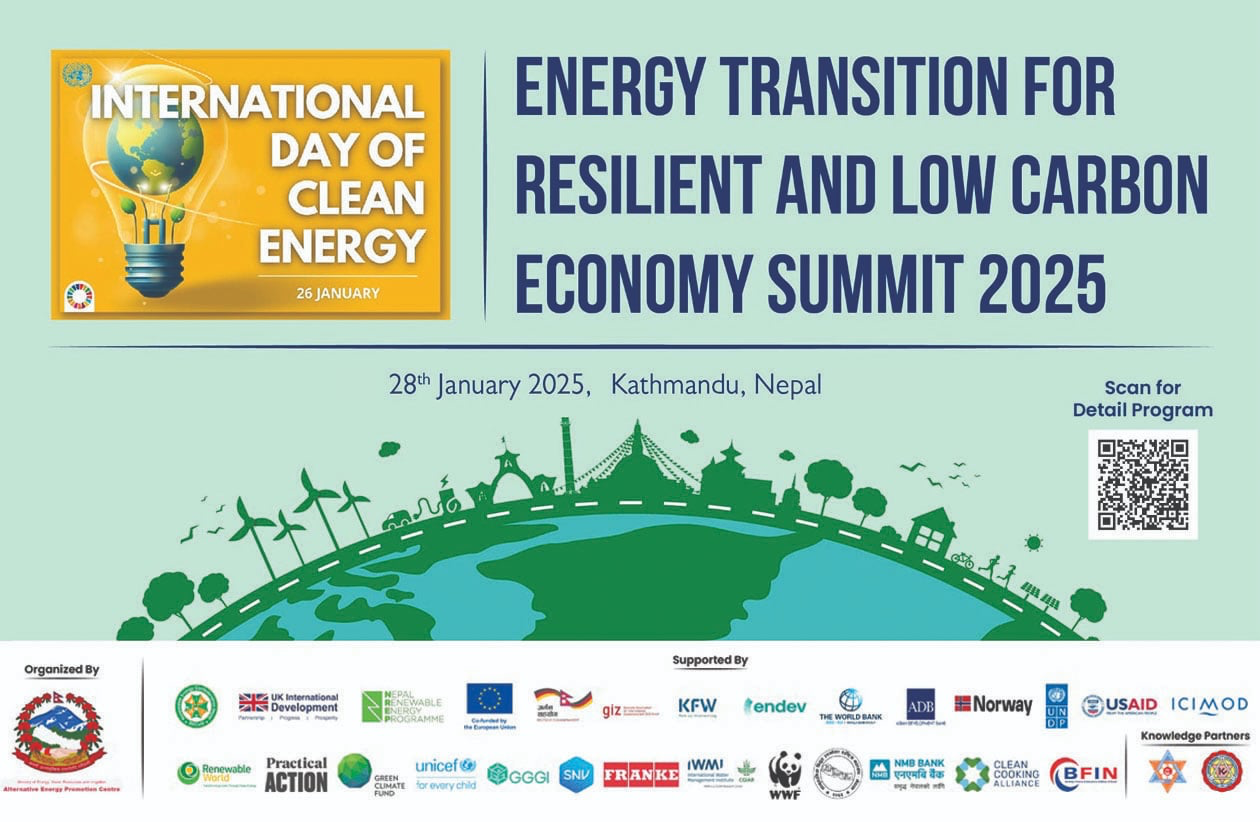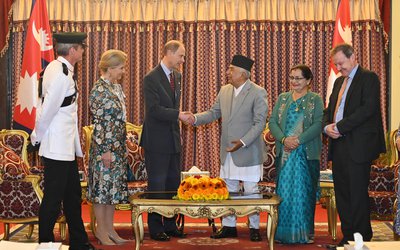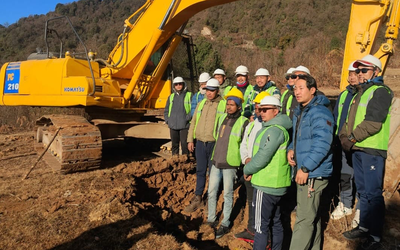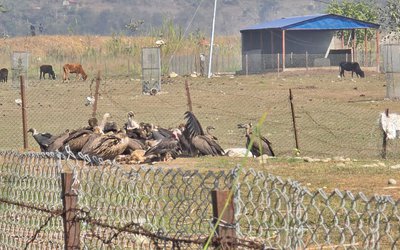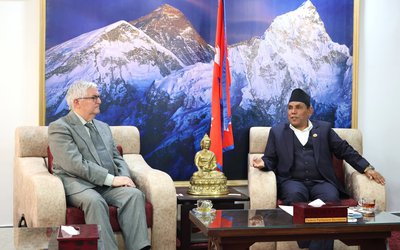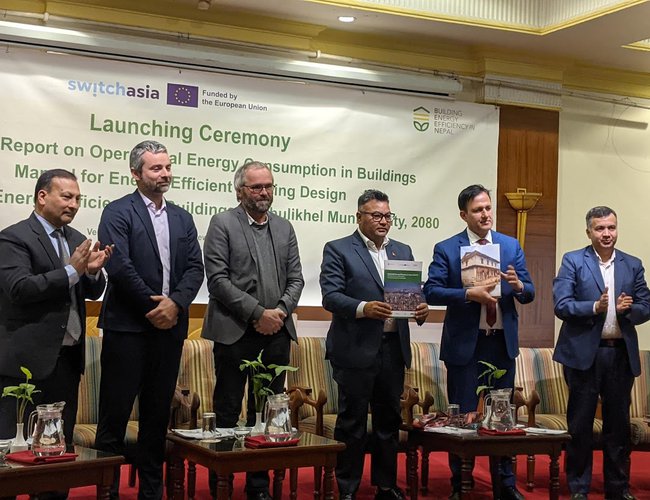
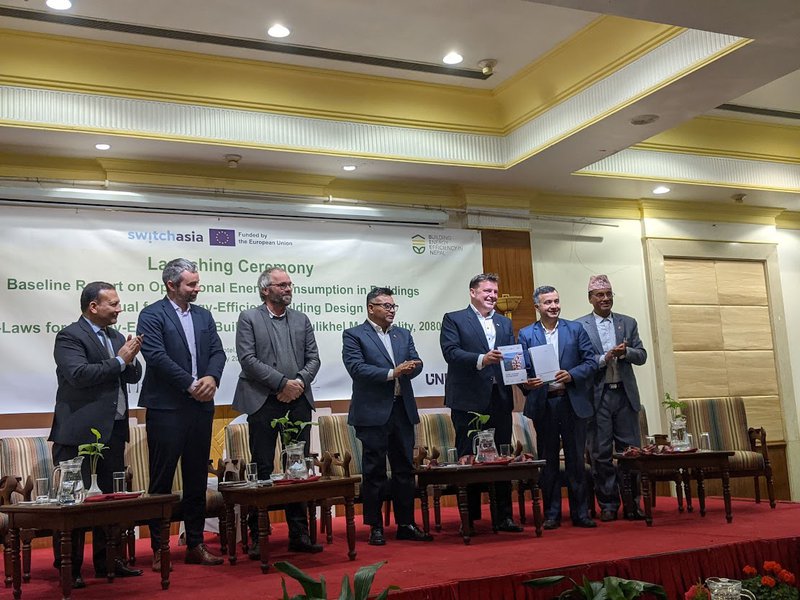
Nepal's building construction is growing, which is increasing the demand for energy for household consumption. This is threatening Nepal's National Determined Commitment (NDC) target of zero emissions by 2045. Three knowledge resources have been launched in Kathmandu in recently has highly important.
The BUILDING Energy Efficiency in Nepal (BEEN) project is funded by the European Union under the Switch-Asia Grant Program. The lead consultant is the University of Innsbruck, Austria, in partnership with MinEnergy Pvt. Ltd, Nepal, Greentech Knowledge Solutions Pvt. Ltd, India, and Asociación Española de Normalización (UNE). The project is working closely with the Federal Government and Local Government to support Nepal in achieving its target of making buildings more energy-efficient.
Policy-level intervention is necessary to encourage the use of energy-efficient materials and designs in building construction. The BEEN has launched three knowledge resources to improve energy efficiency in the Nepalese building sector including By-Laws for Energy-Efficiency in Buildings of Dhulikhel Municipality 2080.
Acting Secretary of the Ministry of Federal Affairs and General Administration, Kamal Prasad Bhattarai, launched the Baseline Report on Operational Energy Consumption in Buildings. This opens a new chapter for the construction of energy-efficient buildings in Nepal.
He expressed gratitude to the European Union for supporting highly important projects that enhance the capacity of Federal and Local governments to construct energy-efficient buildings by providing knowledge base.
The ministry, according to Acting Secretary Bhattarai, has prepared all the necessary documents to improve the capacity of local governments in building design and private sector industries related to buildings.
The mayor of Dhulikhel Municipality, Ashok Byanju Shrestha, unveiled the By-Laws for Energy-Efficiency in Buildings of Dhulikhel Municipality, 2080. Additionally, the Executive Director of the Alternative Energy Promotion Centre (AEPC), Nawa Raj Dhakal, and Dr. Marco Gemmer, Head of Cooperation at the Delegation of the European Union to Nepal, unveiled the Manual for Energy Efficient Building Design for Architects and Building Designers.
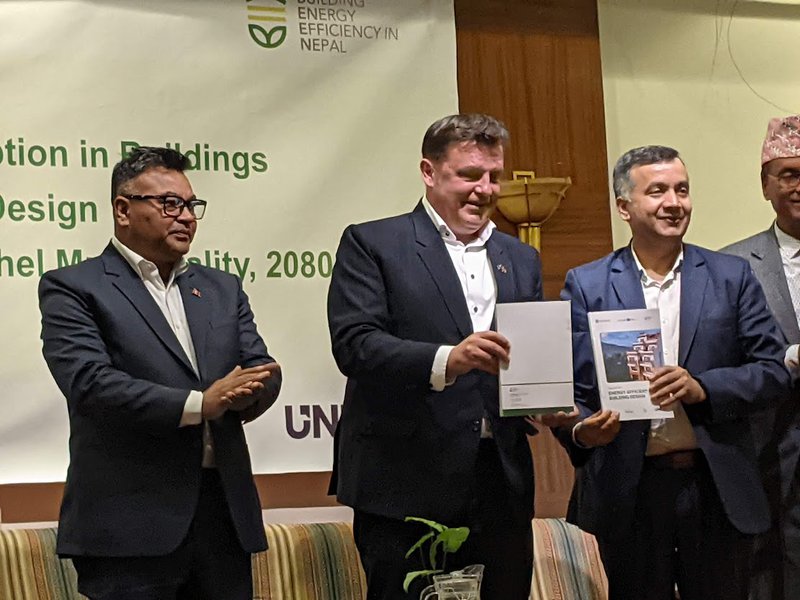
During his presentation, Suyesh Prajapati from BEEN presented the Baseline Report on Operational Energy Consumption in Buildings. During his presentation, Suyesh Prajapati from BEEN presented the Baseline Report on Operational Energy Consumption in Buildings. The report provides a clear and detailed picture of the characteristics of buildings and energy consumption in residential areas, hotels, and day-use offices across four bio-climatic zones in Nepal.
During his presentation, Prajapati from BEEN presented the Baseline Report on Operational Energy Consumption in Buildings. The residential sector in Nepal consumes over 60% of the national energy, resulting in a higher carbon footprint of building stocks. The study reveals that the rapid addition of 1.24 million houses over a decade to reach 6.67 million by 2021 has contributed to this issue.
A comprehensive baseline report sheds light on current construction practices and operational energy consumption across different building typologies in the four bio-climatic zones of Nepal.
The baseline report was developed based on a survey of over 1,220 residential buildings, 121 hotels/resorts, and 120 day-use office buildings. The survey aimed to gather data on construction practices and energy consumption to develop passive design guidelines, tools, standards, and manuals for energy efficiency.
The Team Leader of the BEEN Project highlighted the key findings regarding the current scenarios of energy consumption in building operations.

The report presents detailed information on building characteristics, energy consumption, and energy efficiency strategies for Nepal's building sector. It covers each bioclimatic zone and building typology, including key findings on energy use, sources, and end-use devices for space heating, cooling, and lighting. Additionally, it includes the Energy Performance Index (EPI), the use of renewable energy, and perception and awareness of energy efficiency. The report emphasizes the importance of tailored strategies to enhance energy efficiency.
Rapid urbanization and market demands have led to building designs that neglect local climates, causing increased energy consumption and discomfort.
The Manual for Energy-Efficient Building Design' aims to educate designers on designing energy-efficient buildings in Nepal. It emphasizes climate-responsive design and passive principles relevant to Nepal's diverse climates. Saswati Chetia, Director of Greentech Knowledge Solutions in India, highlighted the key contents of the manual.
She stated that the residential and commercial building sector accounts for nearly 65% of Nepal's total energy consumption. Additionally, about 14% of building energy is used for space cooling and heating in the residential sector, and another 14% is used for water heating and lighting. Additionally, about 14% of building energy is used for space cooling and heating in the residential sector, and another 14% is used for water heating and lighting.

Buildings account for 30% of global energy consumption and 26% of global energy-related CO2 emissions. Therefore, intervening in building construction is crucial to efficiently use energy.
If buildings are not designed with climate-responsive, passive, and energy-efficient strategies, this demand will continue to increase at the same pace. Chetia, Director GKSP stated that designers, architects, and civil engineers can have a crucial impact on the design of such buildings during the early phase of the process.
The manual also aims to improve thermal and visual comfort while reducing energy consumption by addressing the challenges through better construction technologies, roofing, walling techniques, natural ventilation, wall insulation, and window glazing, framing, and shading, among other strategies.
Shrestha, Mayor of Dhulikhel Municipality, highlighted that a significant policy breakthrough has been made, paving the way for energy efficiency (EE) and renewable energy (RE) provisions. "The Energy Efficiency in Buildings Ordinance of Dhulikhel Municipality, 2080 includes EE and RE measures," said Mayor Shrestha. "This landmark legislation will serve as an example for sustainable urban development practices throughout Nepal."
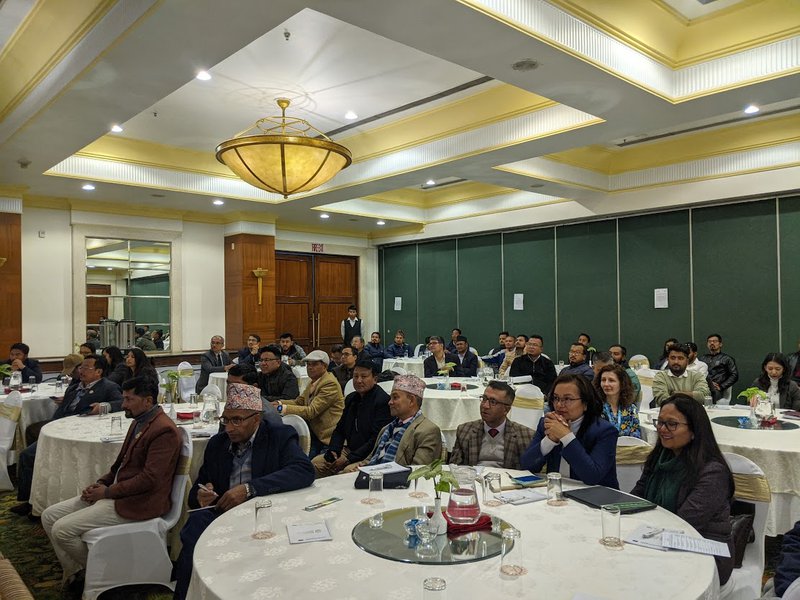
In the presence of the Mayor and Deputy Mayor, technical representatives, university scholars, and private sector entrepreneurs, Mayor Ghanshyam Giri of Chandragiri Municipality announced that his municipality will implement building efficiency starting next month.
General Administration Professor Dr. Wolfgang Streicher-Vice Rector of the University of Innsbruck, and Dr. Daniel Neyer Project Leader of BEEN Project highlighted the importance of manuals.
The By-Laws for Energy-Efficiency in Buildings of Dhulikhel Municipality, 2080 was launched by Shrestha, Mayor of Dhulikhel Municipality. Moderated by Sonie Shrestha of BEEN, the two-hour program was lively.
The BEEN project's collaborative efforts with national and international experts, local governments and stakeholders have culminated in these instrumental resources. These launches represent an important milestone in Nepal's journey towards building design and construction that provides thermal comfort and improved quality of life through the integration of renewable energy and energy efficiency strategies in buildings.
The launch of the three key knowledge resources aimed at improving energy efficiency in the Nepalese building sector is highly significant at this juncture.
- Enough Stock Of Passport For A Year: DoP DG Aryal
- Feb 05, 2025
- Weather Forecast: Geneally Cloudy To Mainly Fair
- Feb 05, 2025
- Duke and Duchess of Edinburgh Nepal Visit: Valuing Shared History And The Next Generation of Nepal –UK Friendship
- Feb 04, 2025
- Duke and Duchess of Edinburgh arrive in Kathmandu on 6-day Royal visit
- Feb 04, 2025
- FNCCI, CNI And NCC Call For Withdraw The Protest Against Cable Car Construction
- Feb 04, 2025
